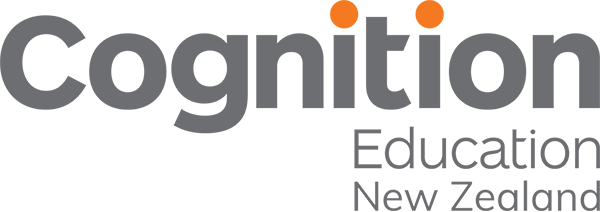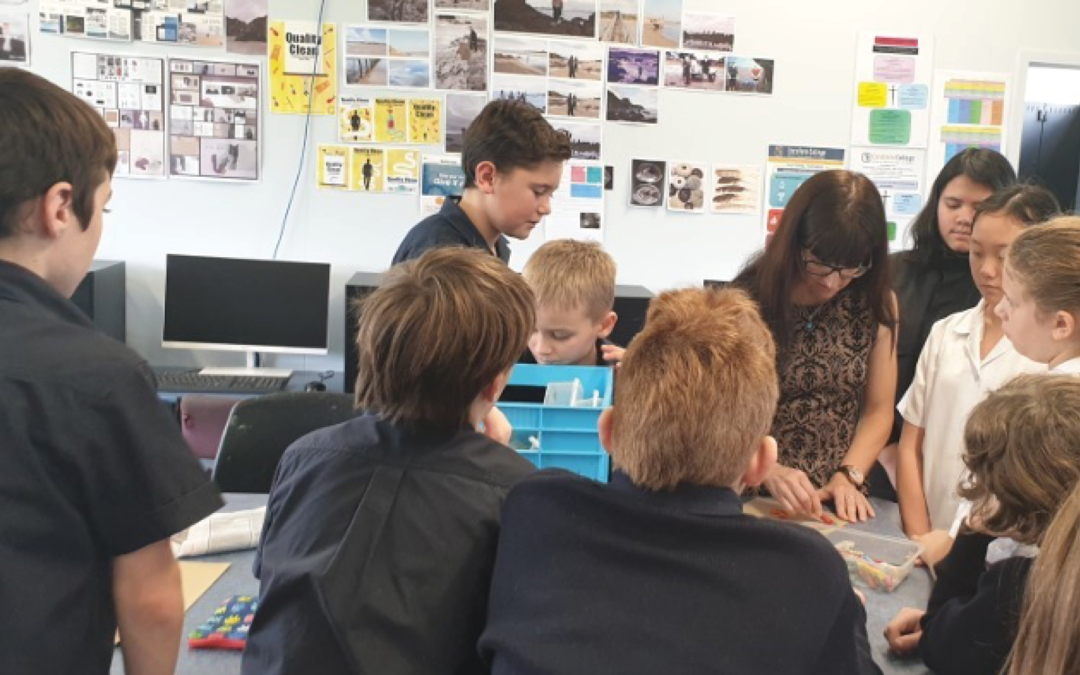How do students at your school talk about their teachers? What do your staff say about learners?
With the ever-increasing focus on addressing racism, inequity in education, and increasing student agency, 3 schools in Tai Tokerau are showing heartening shifts made in the way that students and teachers talk about each other.
We take a deeper look into the impact from Hurupaki School, Totara Grove School and Excellere College’s involvement with the Relationships First (RF) programmes. These three schools are part of the same Kāhui Ako in Kamo, Tai Tokerau. Their roll’s range from 25%-75% Māori students, and they chose to work on RF to support teachers to gain awareness and capability in culturally responsive practice, collaborative and reflective practice, and increasing student agency and ownership of their learning. They achieved all of these things and more.
Less deficit talk from teachers
In all three schools there was a measurable shift in the way that adults were talking about students; a shift from deficit theorising and blame discourse that referred to absenteeism, student behaviour, and family circumstances, to solutions-focused, agentic talk about the potentiality of students and the role of the teacher in making a bigger difference on learner outcomes.
Biggest gains are that:
1. teachers look for solutions and reasons why a learner might not be succeeding.
2. teacher expectations for learners have changed
3. you hear lots more agentic talk happening now
Staff are a lot more aware of what we say and do” and “Conversations and discourse are very agentic now.
One thing I’ve learned from relationships-based learning is to be more aware of what you’re saying and the impact what you say can have.
They are also using more agentic language and having more positive interactions with students.
When Hurupaki first began their engagement with the RF programme of professional learning they thought it would be more about developing teachers’ cultural competencies for Māori learners, but instead they have found it to be a whole pedagogical and coaching model that is strongly focused on developing teachers’ skills and knowledge of effective teaching practices for all learners.
Improved teacher practice / More listening to student voice
Teachers not only changed the way they were talking about students and whānau, but also the ways they were interacting with students in their classrooms. The relationships between teachers and students became more positive and more learning focused. Teachers learnt how to adapt the way they delivered their lessons so that students could have a say in the learning.
Coach Ben Keyte’s report to the senior leaders about the latest round of classroom observations says, “Teachers at the end of 2019 are more commonly using a wider range of effective collaborative teaching practices, as identified in the RbLLP, than they have been at any other time in the course of the project.”
We always had good conversations and relationships with students, but now I think those are more rich conversations.
Teachers are more aware of using discursive teaching practices. Far less transmission teaching happening now than there used to be.
A pedagogical shift for teachers where they have given students much more control over their learning.
This data – and the classroom observational data – supports the conclusion that being involved in the RF professional learning programme has, indeed, had a transformative impact on;
1. teachers taking a much more positive and ‘agentic’ position so that they now see themselves as being more able to have a positive impact on student outcomes inspite of external factors than they had before participating in the programme and,
2. teachers changing what they are saying and doing in the classroom to enable and encourage students to take more control of their own learning and to take on challenges around their learning.
Growing leadership capability and spreading the learning
More than just a PLD programme for improving teaching and learning, these schools said there were added benefits to their involvement in RF. For Hurupaki School, RF turned out to be “something quite different and much more transformational than what we expected” (Rob). Rob Posthumus, the Principal, described RF as a whole pedagogical and coaching model that is strongly focused on developing teachers’ skills and knowledge of effective teaching practices for all learners. In addition to this, RF was responsible for “growth in the leadership skills of our Middle Leaders”.
At Totara Grove School, the Impact Coaches began leading the learning of others. One of the biggest gains they noticed was the impact of this spread. The workshops that Impact Coaches held with the school’s Teacher Aides about the Relationships-based Leaders of Learning Profile has had a hugely positive impact on how the Teacher Aides interact with students and how they support the kaupapa of the work.
Spread is an essential element of the sustainability of any professional learning and accredited Impact Coaches from these three schools are now confidently leading the training and development of new coaches across their Kāhui Ako.
The classroom observation process and coaching conversations at Excellere have permeated the staff learning culture, creating a more collaborative environment where openly discussing their practice is normal.
The coaching conversations are very valuable. The feedback you get and your own reflection on your teaching is powerful as you get to see what you’re doing well or what else you can improve on.
The observation & coaching conversation process is really cool. I’ve found it non-confronting and the feedback’s been really supportive.
The programme has taken away many barriers so there’s a sense we’re all on the journey together now.
Hurupaki School
Hurupaki School Time Two Voices Graph – October 2019
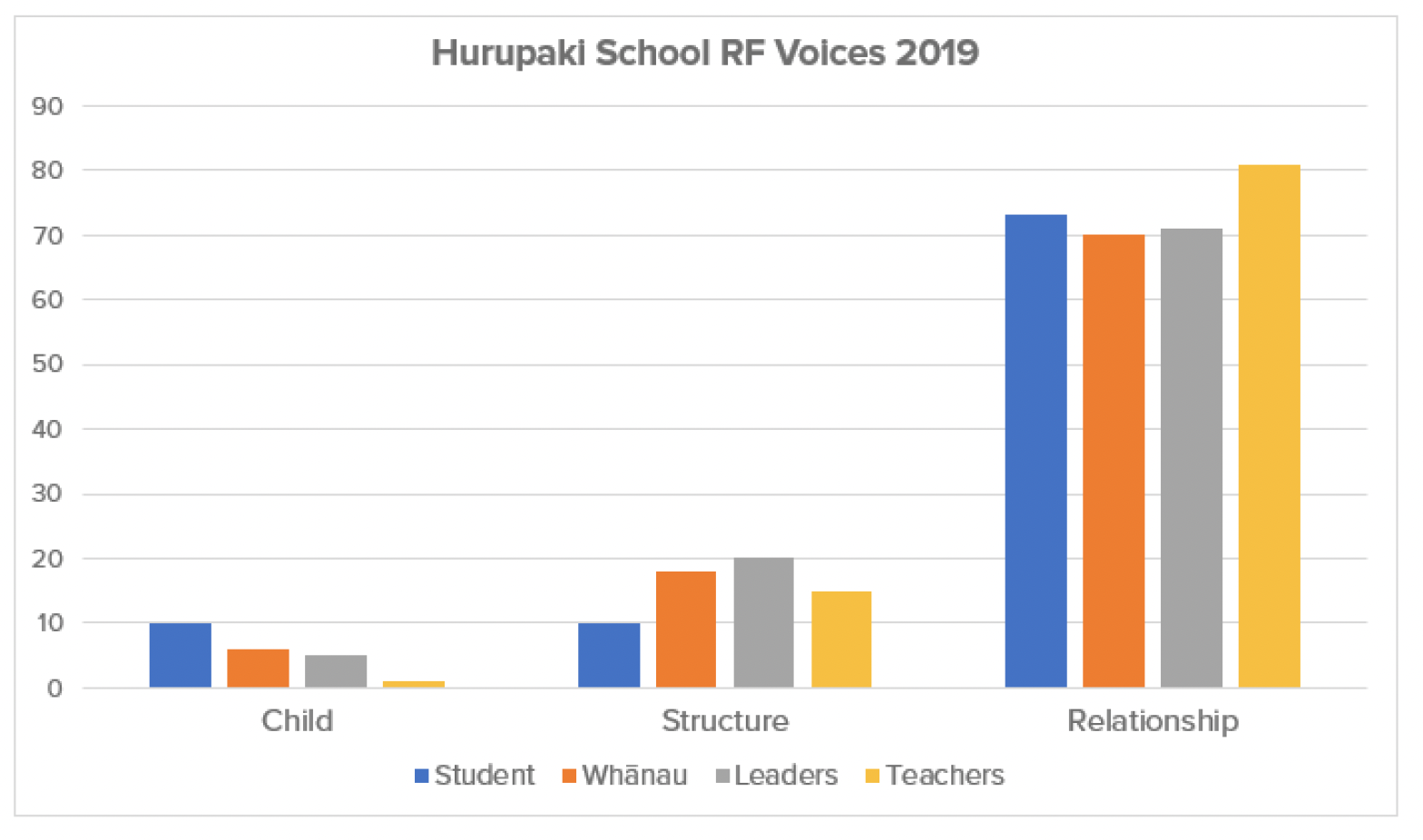
In addition, when October 2019 Voices were analysed and coded, there were far more statements from student and parents voices that emphasised positive beliefs and experiences and many fewer that expressed negative beliefs or experiences.
Percentage of October 2019 comments coded as either “Enablers” (+ve) or “Barriers” (-ve) to student success

Totara Grove School
Totara Grove School Time Two Voices Graph – 2019
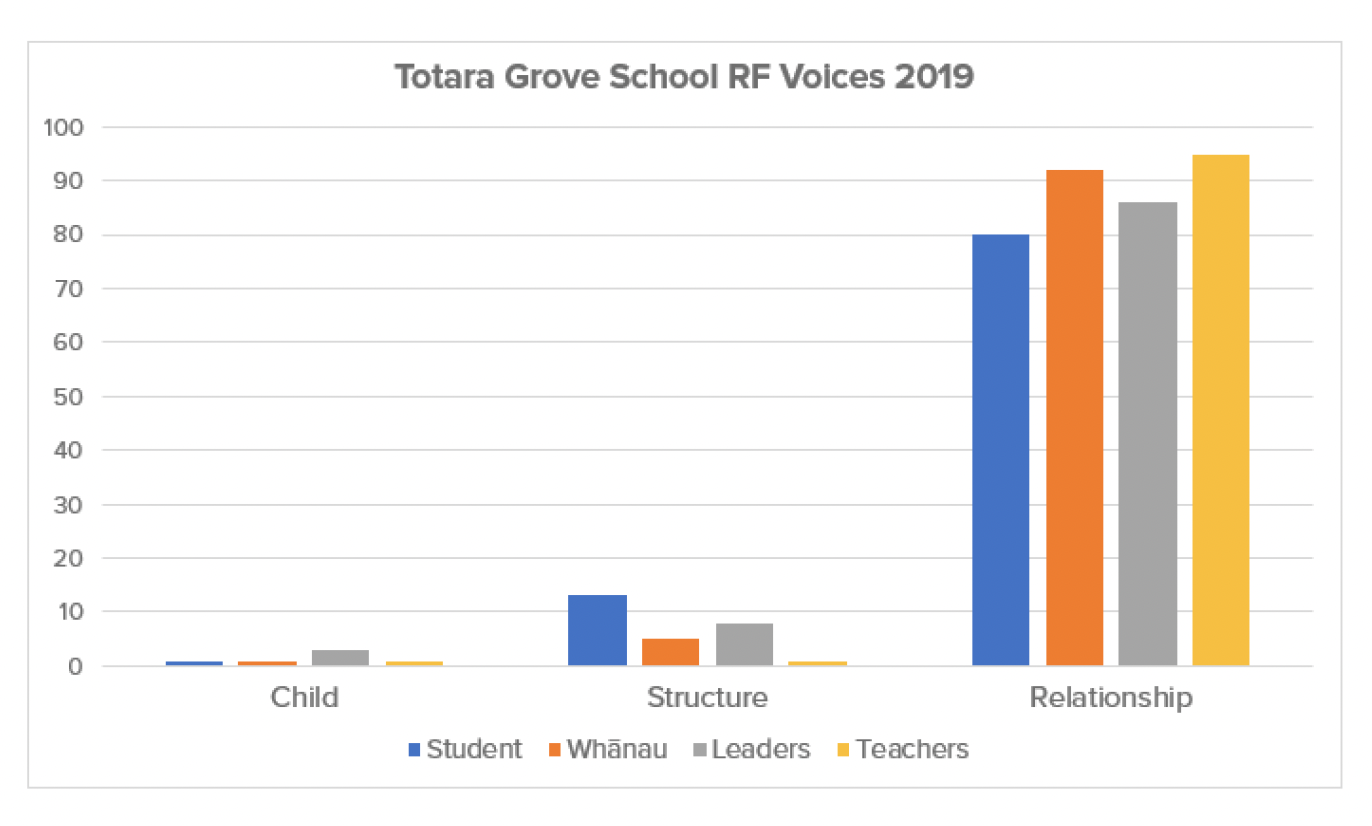
Student Voice collected in 2018 spoke of their enjoyment of school and many students feeling that most teachers cared about them, had high expectations of them and helped them to do their best with their learning. That is students comments and voice focused mostly on the relationships they had with teaches. In 2019, the Student Voice has shifted with students speaking about their having more control over their learning and recognising that teachers were using a wider range of teaching strategies to provide them with some ownership of their learning. This shows a shift in awareness amongst students that is relationship plus effective teaching practices and pedagogy that contribute to their success as learners. It also provides evidence to support the Totara Grove leadership team’s own reflections that there has been significant shift across the school in teachers’ use of a wider range of discursive practices and efforts to provide students with more opportunity to take control of their own learning.
Totara Grove School Comparison of 2016-2019 OTJ Achievement Data – Years 1 to 6
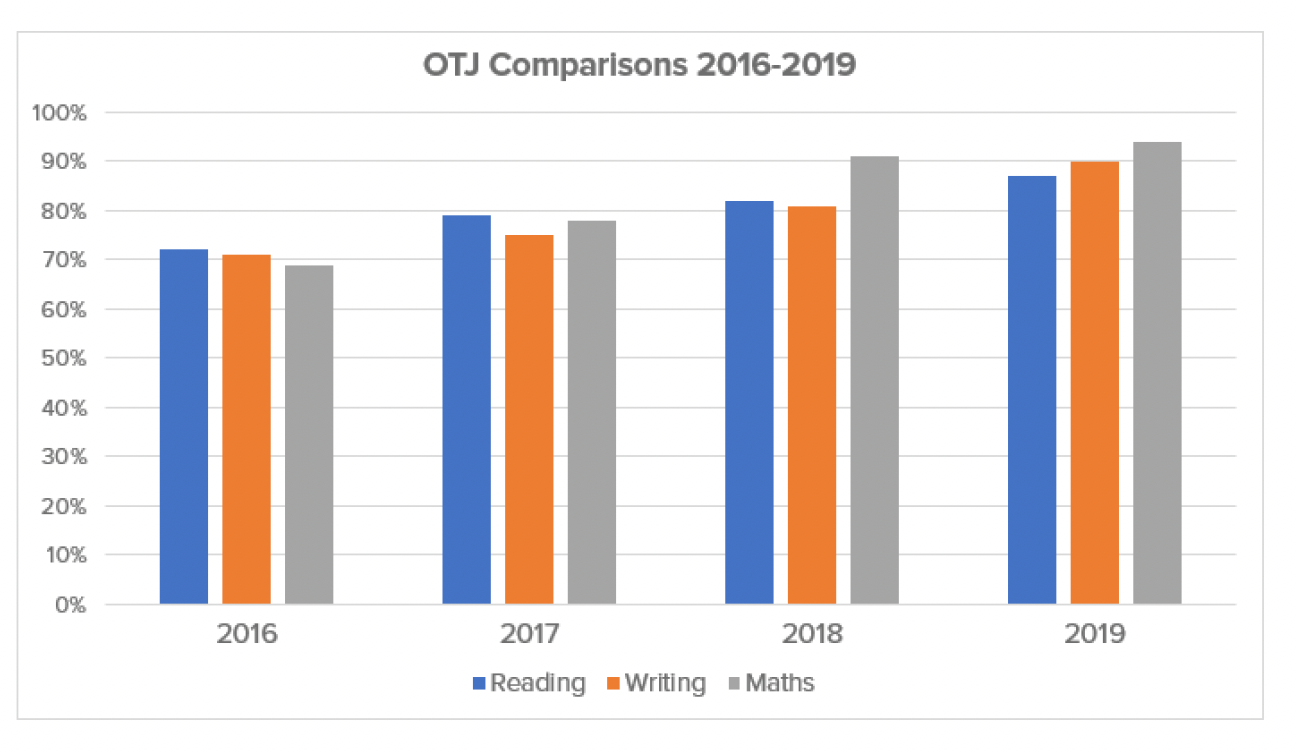
NB: 2019 judgments are based on curriculum level expectations, not National Standards which were used for 2016-2018 judgments.
Excellere College
Effective Teaching
In RF, we use carefully researched classroom observation tools to monitor and evaluate the degree to which the teacher and classroom exhibits the desired characteristics of a culturally responsive relationships-based learning classroom.
At Excellere College, the classroom observation tool has enabled great professional conversations to occur by providing a framework around which the teachers and impact coaches can discuss what was observed and the meaning that can be made from it. The leadership team observed that teachers, on the whole, are using the observation data very effectively to reflect on and to set goals or next steps for their teaching.
Data collected from observations in 2018 & 2019 shows a growing capability amongst staff at Excellere College in the Whanaungatanga (positive teacher-student interactions and relationship building) aspects of their classrooms and in the use of Discursive Practices. Table 2 below shoes the average scores given across all the observations from T1-T3.

